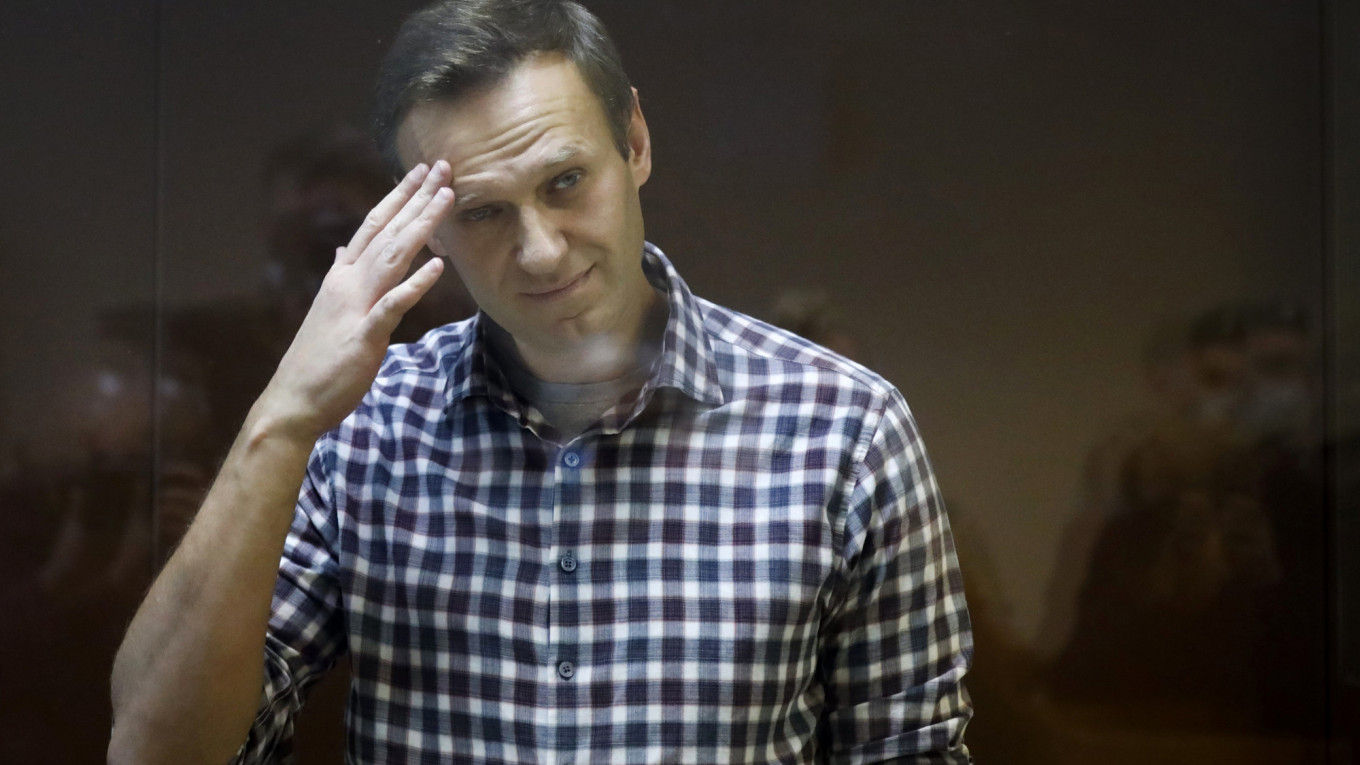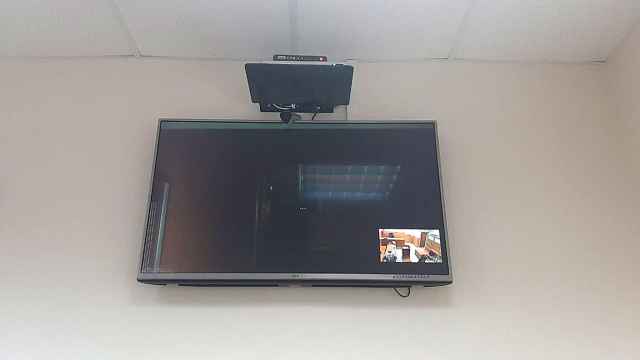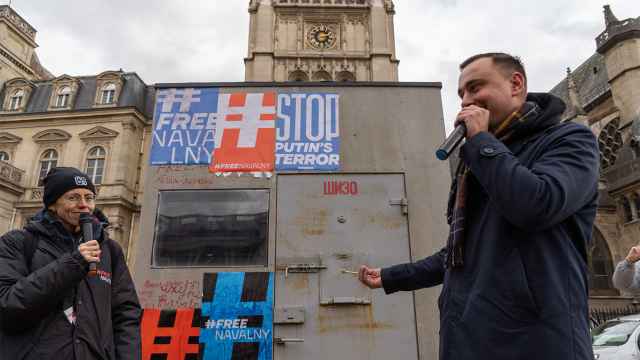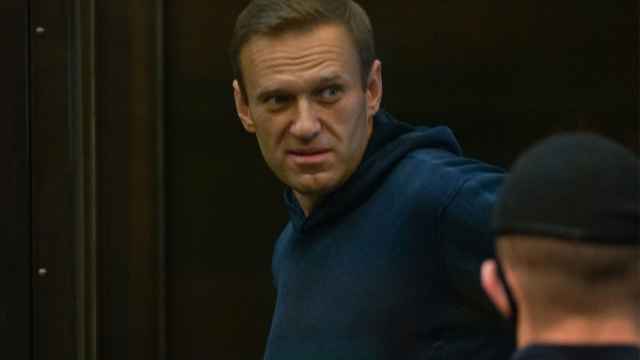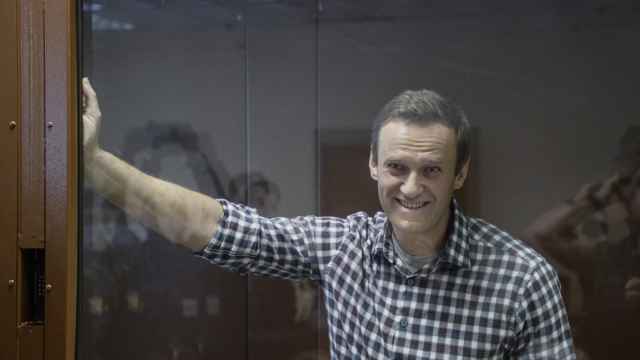Jailed Kremlin critic Alexei Navalny has given his first interview from prison, comparing it to a Chinese labor camp and saying he is forced to watch eight hours of state television a day.
Navalny, who built his political career on exposing corruption in Russia, is being held in a maximum security prison colony in Pokrov, 100 kilometers (60 miles) east of Moscow.
He told The New York Times the days of heavy labor in Soviet gulags were over — replaced by what he called the "psychological violence" of brainwashing and propaganda.
"You might imagine tattooed muscle men with steel teeth carrying on with knife fights to take the best cot by the window," Navalny was quoted as saying in the interview, published Wednesday.
"You need to imagine something like a Chinese labor camp, where everybody marches in a line and where video cameras are hung everywhere. There is constant control and a culture of snitching."
He said guards monitored them as they watched hours of state propaganda, not allowing them to read or write and waking inmates up if they fell asleep.
But Navalny remained upbeat about the future of the regime of Vladimir Putin, insisting that one day it would end.
"Sooner or later, this mistake will be fixed, and Russia will move on to a democratic, European path of development. Simply because that is what the people want," he said.
He also repeated criticisms of the United States and European governments for sanctions on Russia, which he said harm Russian people rather than those in power.
He said he has not been assaulted by any fellow prisoners, and even described having "fun" making snacks with them.
Navalny has not been silent since his jailing in March, releasing a letter from prison and also managing several social media posts, but the interview with the Times was the first since his imprisonment.
Western intelligence agencies have assessed with "high confidence" that FSB officers poisoned Navalny with the nerve agent Novichok last year.
The dissident was flown to Germany for treatment but defiantly returned to Russia in January, only to be arrested and sent to the penal colony.
The Kremlin denies poisoning Navalny and has maintained his prison sentence is not political.
This month, he was charged with new crimes that could prolong his jail time by three years. If found guilty, he could only be released after 2024, the year Russia is scheduled to hold a presidential election.
His movement has faced unprecedented pressure ahead of September parliamentary polls in Russia, in which Putin's United Russia party is expected to struggle.
A Message from The Moscow Times:
Dear readers,
We are facing unprecedented challenges. Russia's Prosecutor General's Office has designated The Moscow Times as an "undesirable" organization, criminalizing our work and putting our staff at risk of prosecution. This follows our earlier unjust labeling as a "foreign agent."
These actions are direct attempts to silence independent journalism in Russia. The authorities claim our work "discredits the decisions of the Russian leadership." We see things differently: we strive to provide accurate, unbiased reporting on Russia.
We, the journalists of The Moscow Times, refuse to be silenced. But to continue our work, we need your help.
Your support, no matter how small, makes a world of difference. If you can, please support us monthly starting from just $2. It's quick to set up, and every contribution makes a significant impact.
By supporting The Moscow Times, you're defending open, independent journalism in the face of repression. Thank you for standing with us.
Remind me later.


